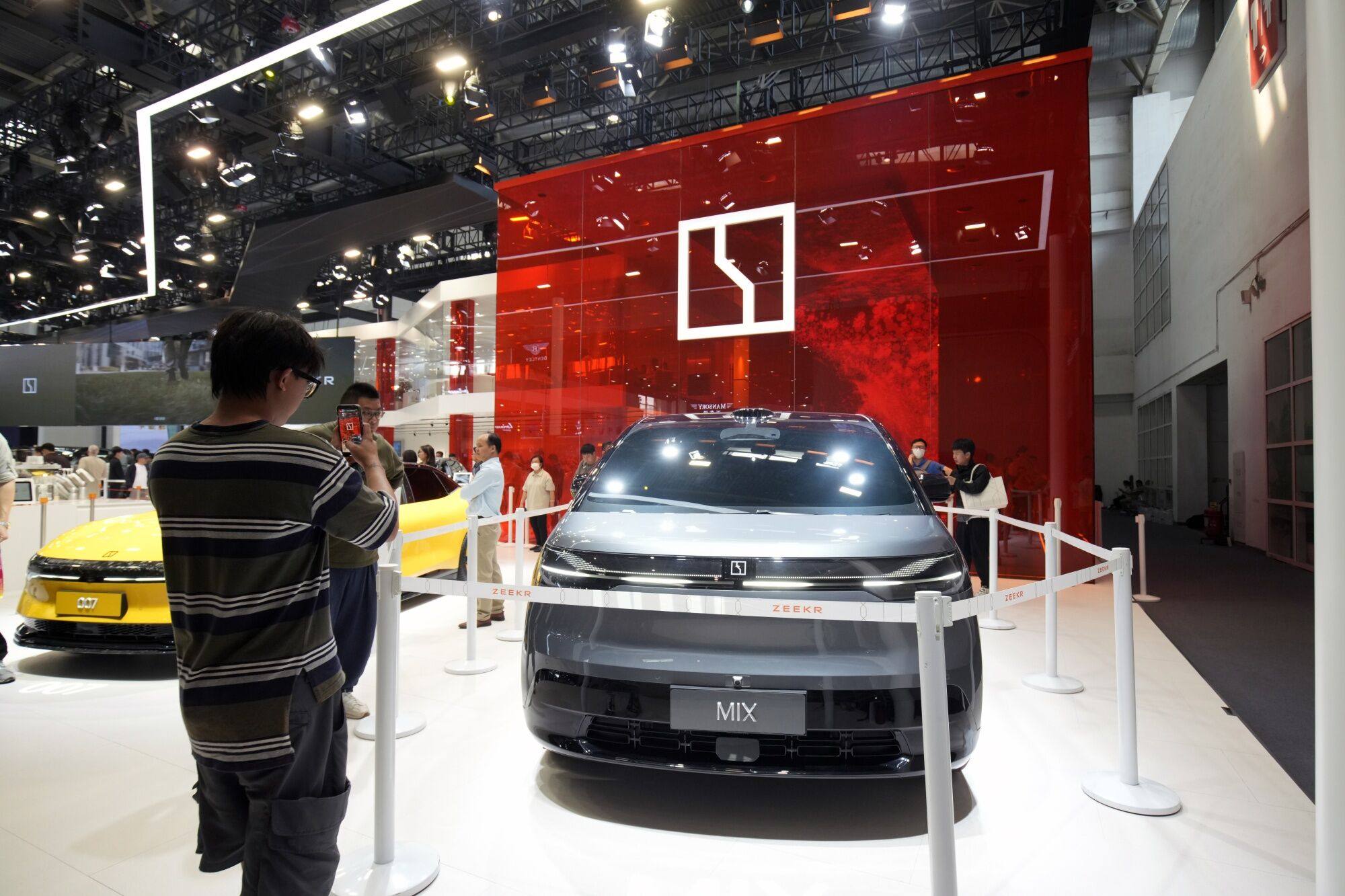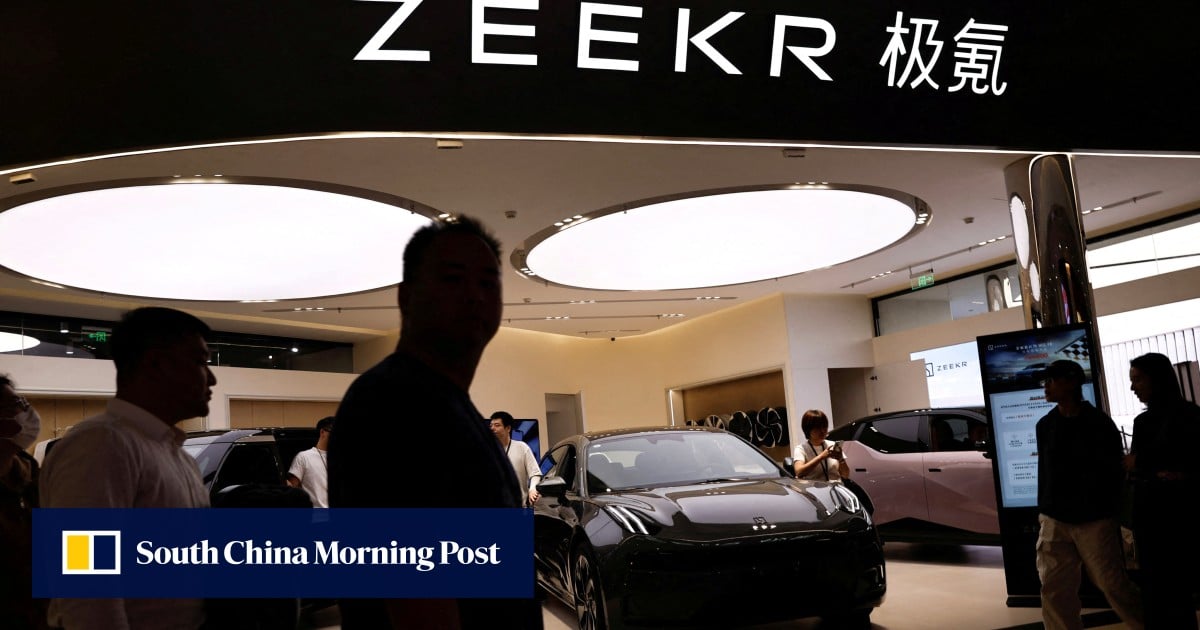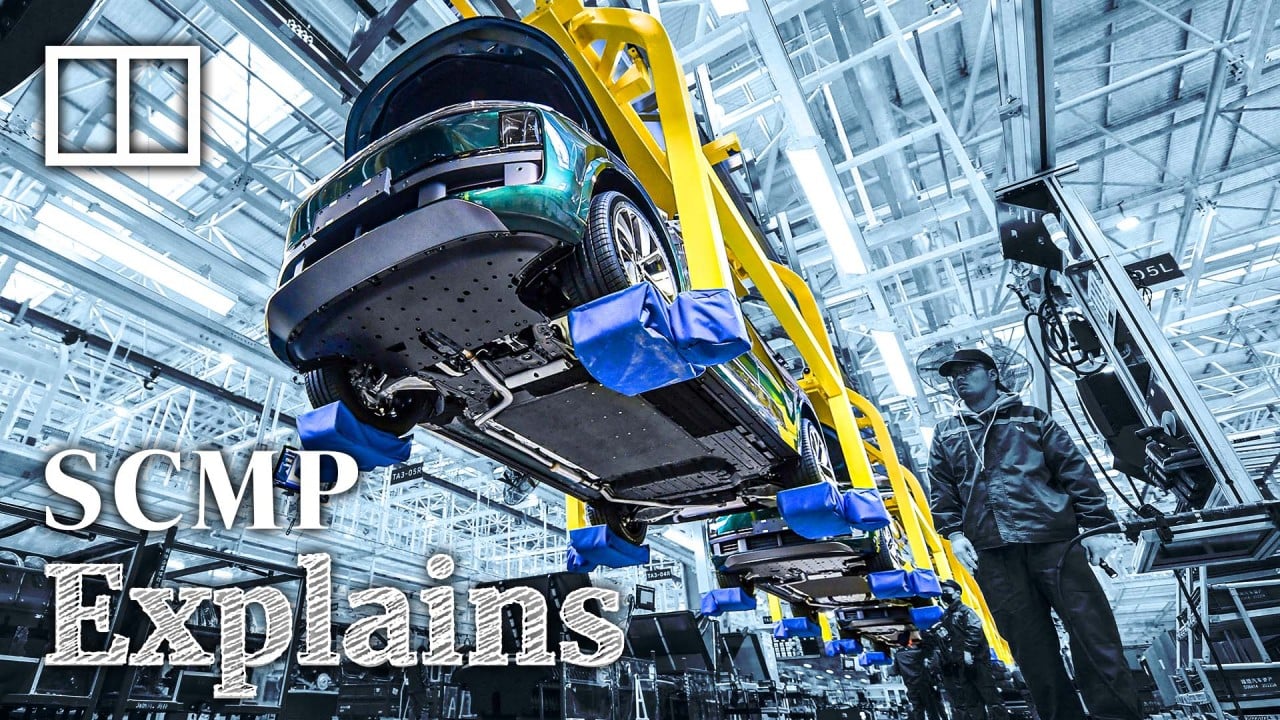The Chinese carmaker sold 21 million American depositary shares (ADS) at US$21 each, the top end of the price range of US$18 to US$21, according to two executives briefed on the matter. The company earlier filed to sell 17.5 million ADS, and granted its underwriters an option to sell an additional 2.625 million ADS, according to its regulatory filing on May 3.
The stock is due to start trading on the New York Stock Exchange on Friday. The IPO, which values Zeekr as a whole at US$5.1 billion, is the largest by a Chinese company in the US since Full Truck Alliance raised US$1.6 billion from its New York listing in June 2021, according to exchange data.

“Appetite for leading Chinese EV makers remains strong in the US,” said Cao Hua, a partner at Unity Asset Management, a Shanghai-based private equity firm. “Zeekr’s improved performance in China recently has given investors the confidence to subscribe to the IPO.”
Geely established Zeekr in 2021 and started delivering its Zeekr 001 in October 2021 and its second model Zeekr 009 in January 2023 and its compact SUV called Zeekr X in June 2023. Recent additions to its line-up include Zeekr 009 Grand and its multipurpose vehicle Zeekr MIX, both unveiled last month.
Hong Kong’s IPO revival is ‘inevitable’ as applications jump, HKEX CEO says
Hong Kong’s IPO revival is ‘inevitable’ as applications jump, HKEX CEO says
Zeekr’s IPO came amid robust sales this year, mostly in the domestic market. The firm delivered 16,089 units in April, a 24 per cent increase over March. Deliveries in the first four months totalled 49,148 units, 111 per cent surge from the same period last year, according to its IPO filing.
Even so, the carmaker remains unprofitable. It recorded a net loss of 8.26 billion yuan (US$1.1 billion) in 2023 and 7.66 billion yuan in 2022.
“We estimate our gross profit margin in the first quarter of 2024 to be lower than the fourth quarter of 2023 because of the negative effect from the delivery of new vehicle models as well as change in product mix,” Zeekr said in its US filing. Higher sales of lower-margin businesses like batteries and components could also impact results, it added.
Sales of pure electric and plug-in hybrid cars across mainland China increased 35 per cent to 2.48 million units in the January-to-April period from a year earlier, according to the China Passenger Car Association, amid a price war and concerns about excess capacity in the world’s largest EV market.


